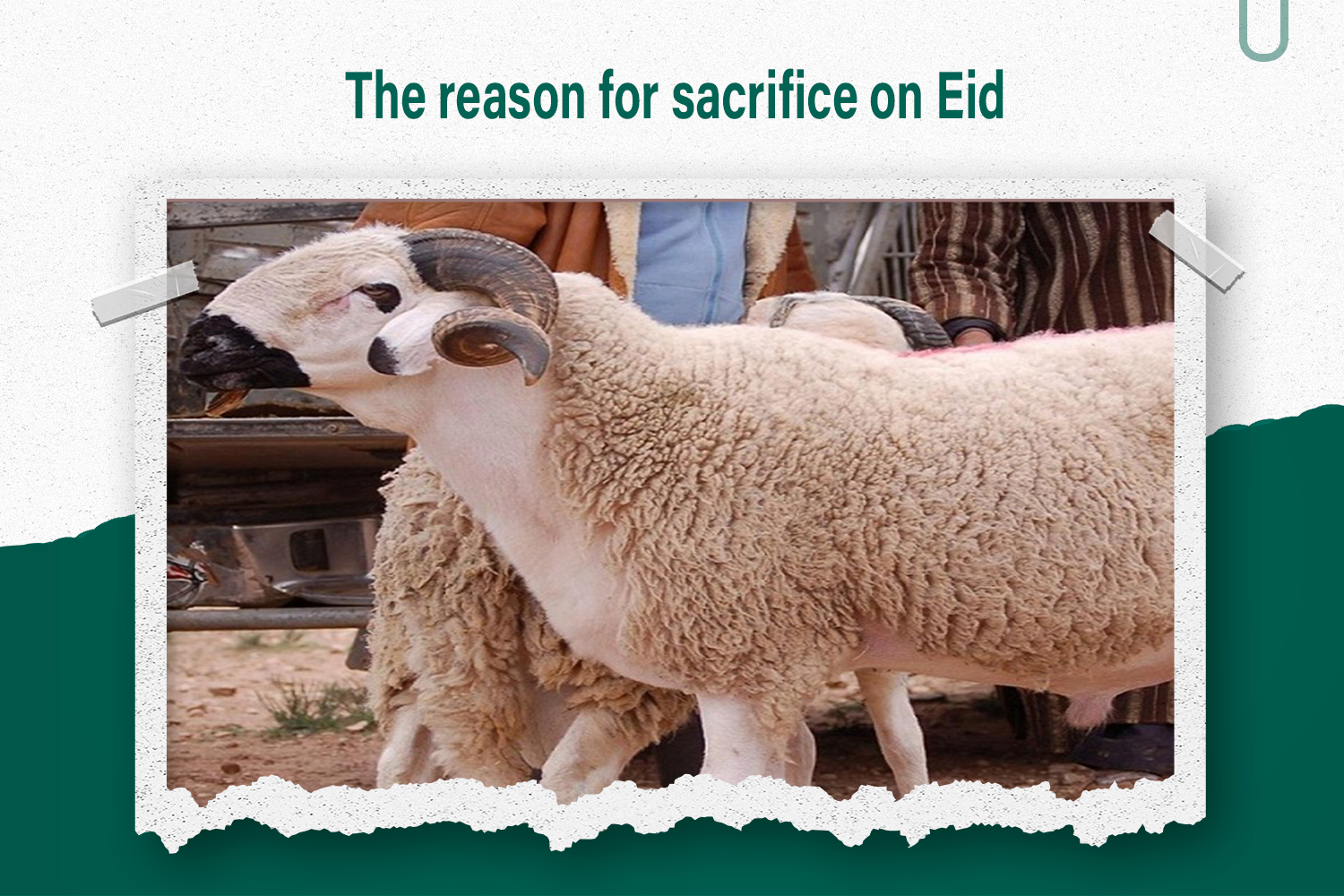The reason for the sacrifice at the feast
Sacrifice is a great value that is closely related to the holiday, it expresses the sacrifice of time, effort and resources for the sake of God’s satisfaction and the strengthening of social relations. Sacrifice is part of the culture and traditions that are widespread in our societies, and carries stories that promote the values of giving and dedication. In this article, we will discuss the stories and traditions associated with sacrifice on Eid, the importance of cultural customs in celebrating it, as well as social and religious factors that influence the promotion of the values of sacrifice. We will also touch on the impact of sacrifice on society and the individual, and the importance of preserving these cultural traditions.
Definition of sacrifice and its importance in Eid
Sacrifice at the feast is a great value that expresses dedication and sacrifice of time, effort and resources. Sacrifice is an essential part of the festive culture and promotes social relations and a collective spirit. It expresses the spirit of cooperation and compassion between people, promotes human values such as giving and giving. Sacrifice is considered one of the ways to express gratitude and gratitude for the blessings given by God. In addition, sacrifice also promotes the spirit of communication, interconnection of individuals and the strengthening of belonging to society.
Rooting of sacrifice in culture
The rooting of sacrifice in culture is due to many historical factors and traditions. In many cultures, sacrifice is the deepest symbol of dedication and self-sacrifice for the sake of others. This is evidenced by heritage stories and anecdotes that tell about people’s belief in the importance of sacrifice and its spiritual value. The rooting of sacrifice in culture strengthens social cohesion and deepens the spirit of shared responsibility among members of society.
Stories and traditions
Traditional stories tell about the sacrifice of the Prophet Ibrahim (peace be upon him) to his son Ishmael on Eid. These stories are a source of inspiration for people to sacrifice and dedicate for the sake of others at this blessed time. In addition, there are such common traditions associated with the sacrifice of the feast as the distribution of gifts and social visits. Those traditions foster a spirit of sacrifice and dedication to the community.
Traditional stories about sacrifice at the feast
Traditional stories tell about the sacrifice of the Prophet Ibrahim (peace be upon him) to his son Ishmael on Eid. These stories are a source of inspiration for people to sacrifice and dedicate for the sake of others at this blessed time. In addition, there are such common traditions associated with the sacrifice of the feast as the distribution of gifts and social visits. Those traditions foster a spirit of sacrifice and dedication to the community.
Common traditions and values associated with sacrifice
Common traditions and values associated with sacrifice at the feast include the distribution of gifts, visiting relatives and friends. These traditions promote affection and cooperation between people, remind them of the importance of giving and sacrifice in social relations. In addition, traditions promote the values of tolerance, gratitude and positive communication in society. These valuable cultural traditions must be preserved and passed on to future generations.
Customs and ceremonies
Customs and ceremonies of sacrifice on the Feast are characterized by many characteristic rituals. Common customs include the distribution of gifts, visiting relatives and friends. Exchanging gifts is an expression of appreciation and love, while visiting relatives and friends promotes communication and social integration. Such customs are considered an opportunity to strengthen family and social ties, reflect the values of giving and affection in society.
Rituals and customs of celebrating sacrifice
The rituals and customs of celebrating the sacrifice include several stages. It starts with inviting relatives and friends to a joint holiday meal. Then the sacrifice is offered and divided between those present and the poor. Rituals may also include wearing traditional clothes and attending religious prayers. The celebrations end with the exchange of congratulations and the exchange of gifts between individuals.
The importance of cultural customs in Brazil
Cultural customs in Brazil are of great importance in the manufacture of national identity and the strengthening of social cohesion among the population. Customs and traditions are an integral part of the life of Brazilians and reflect their history and cultural diversity. Cultural customs in Brazil include the celebration of traditional festivals, music, dance and culinary delights. These customs are an occasion to express joy and celebrate the rich Brazilian heritage.
Social and religious factors
Social and religious factors play an important role in promoting the values of sacrifice at the feast. Through collective participation in these traditions, social ties are built and bonding between members of society is strengthened. Eid is also considered an occasion to practice worship and get closer to God. Many believe that sacrifice on a holiday is a way to express gratitude, gratitude and humility before God.
The role of social factors in promoting the values of sacrifice
Social factors play an important role in promoting the values of sacrifice at the feast. Through collective participation in these traditions, social ties are built and bonding between members of society is strengthened. Through the participation of friends and family in the preparation of sacrifices and their distribution to those in need, social values such as cooperation and solidarity are promoted. These social factors strengthen the social spirit, belonging and enhance the human value of sacrifice.
The religious view of sacrifice on Eid
Sacrifice has a prestigious place in the monotheistic religions and religious beliefs. In Islam, sacrifice on Eid al-Adha is considered a sacrificial religious duty, during which the sacrifice to the Almighty is sacrificed as an expression of true sacrifice and humility before Allah. This action refers to giving the best, showing goodness and thanking God. The religious view of sacrifice on the holiday promotes the values of discipline, solidarity, humility and cooperation in society.
Cultural and psychological influence
Sacrifice at the feast entails strong cultural and psychological effects. It is through these traditions that the family spirit and bonding between members of society are strengthened. Values related to sacrifice also serve to enhance the sense of satisfaction and happiness of the individual who has made it. In addition, sacrifice promotes the values of cooperation and solidarity in society and motivates to help others in need.
The impact of sacrifice on society and the individual
The sacrifice at the feast serves to strengthen the family spirit and bonding between members of society. The values of sacrifice motivate to help others in need and promote cooperation and solidarity in society. In addition, a person who sacrifices feels good and happy because he gives something important to others.
The influence of elevated cultural values on the psyche
Sacrifice at the feast strengthens the raised cultural values and positively affects the psyche. Thanks to the sacrifice, the individual feels satisfied and happy because he gives something important to others. It promotes elevated cultural values such as giving, cooperation and social solidarity, and helps create an atmosphere of affection and bonding between members of society. People growing up in an environment incubating sacrificial values feel satisfaction and trust in others, which positively affects their psyche.
Conclusion
In conclusion, it becomes clear the importance of preserving the traditions of sacrifice at the feast. These traditions represent high human values, such as giving, cooperation and social solidarity. By keeping these traditions, we maintain a positive spirit in society and achieve communication and interconnection between its members. Sacrifice also stimulates human values in individuals and promotes satisfaction and happiness in them.
The importance of preserving the traditions of sacrifice
In conclusion, it becomes clear the importance of preserving the traditions of sacrifice at the feast. These traditions represent high human values, such as giving, cooperation and social solidarity. By keeping these traditions, we maintain a positive spirit in society and achieve communication and interconnection between its members. Sacrifice also stimulates human values in individuals and promotes satisfaction and happiness in them.
Motivating human values through sacrifice
Sacrifice stimulates high human values in an individual, such as giving, cooperation, Social Solidarity. When a person makes a sacrifice on a holiday, he expresses a spirit of initiative and cooperation with others. It also contributes to strengthening social ties and family bonding. In addition, Sacrifice serves to increase satisfaction and happiness in the souls of individuals, as they feel pride and psychological satisfaction after making the sacrifice.
You can visit the ahad Association website to find out more about the projects it offers
Related articles:
The importance and bounty of the month of Ramadan
Join us in our message by donating







